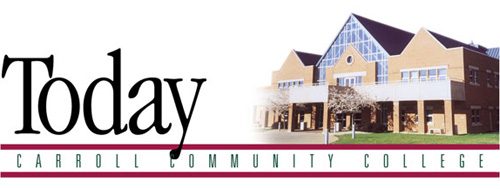
![]()
Contents
President Announces Strategic Initiatives for FY2001 and FY2002
New State Scholarships to Benefit Transfers from Carroll
Book Fair Set for November 11th
Self Study Completed, Team to Visit November 12-15
Enrollment Increases Over 13 Percent
Stock Gifts Make End-of-year Tax Sense
The Learning- centered College
![]()
Stock Gifts Make End-of-year Tax Sense
December 31st and the end of the tax year 2000 are fast approaching. It’s not too late to consider a charitable contribution of appreciated securities as a way to reduce your income taxes and your capital gains. In fact, the fall is a great time since you don’t want to wait until the last day and find that there’s not enough time to execute the transfer of stock or mutual fund shares to your favorite charity. We hope that you will consider Carroll Community College in your plans.
A gift of stock held at your brokerage or discount trading company can be transferred electronically to The Carroll Community College Foundation’s stock transfer account designed exclusively for the receipt of charitable gifts of appreciated securities.
If you have questions about how to make a gift of appreciated securities, please contact Jacqueline Harrington, Executive Director for Institutional Development and College Foundation, The Carroll Community College Foundation, 1601 Washington Road, Westminster, MD 21157 at 410-386-8154 directly. She will be happy to assist you with your annual or longer-term charitable gift plans.
The Learning- centered College
A learning-centered college
- embraces student learning as its primary and defining mission
- encourages students to be full and active partners in the learning process
- creates an environment supportive of student and organizational learning
- assesses learning outcomes and uses the results to improve learning
- evaluates all areas of the college by how they foster learning
A learning college continuously asks itself the following two questions:
- Does this policy, program, practice, or personnel decision improve or expand student or organizational learning?
- How do we know this policy, program, practice, or personnel decision improves or expands student or organizational learning?
![]()